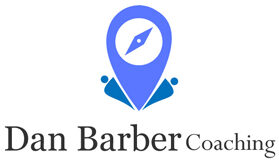How many times a day do you use the word “SHOULD” in reference to yourself or other people? I don’t know about you, but I used to use it a lot. But now I try to avoid it.
The word has become a common one, a fixture even, used with regularity by almost everyone. It seems to be such an innocent word though, so what’s the big deal.
“I should practice more.”
“I should take some time off.”
“I should exercise in the morning”
“I should lose some weight.”
“I should eat more fresh veggies.”
“I should eat less red meat.”
“We should get together for a coffee.”
Sound familiar?
Why do we do it?
To get someone off our back? “Yes, you’re right, I really should spend more time with my kids.” Maybe “SHOULD” is a way to move on quickly from the conversation.
To give ourselves an out? “I really should, but I just don’t have time right now.” Maybe “SHOULD” simply becomes an excuse for not doing something.
To avoid someone? “Yes, we should get together sometime.” Admit it. Sometime that is code words for “I don’t want to…”
Just the other day I bumped into a friend and we began to talk. It wasn’t long before one of us said, “We should get together.” We both agreed so we pulled out our calendars and booked it. I see him in 2 days.
Never let “SHOULD” keep you from what you want to do.
Most of us have used “SHOULD” for one reason or another but there is an inherent problem with it resorting to should; primarily that it doesn’t accomplish anything, other than reinforce the things we aren’t doing.
A couple of weeks ago, I encouraged us not to avoid the word FAILURE. You can read more about that here.
But “SHOULD” is a word best left out of our vocabulary.
Here’s the problem…
When we should or should not do something, we aren’t actually choosing anything. Nothing changes. We’re simply making an observation.
If we say to ourselves “I should really eat more vegetables,” the unspoken follow-up to that sentence is “… but I don’t. Or, if we say, “I should really be exercising this morning,” the unspoken ending to that sentence is “… but I’m not.”
When we tell ourselves or other people that we should or they should be doing something (as well-meaning as we might be), we’re reinforcing the negative, and the fact that we or they are not doing it.
This doesn’t lead us to do these things, it simply makes us feel bad that we’re not. And those negative feelings can actually keep us from making any changes at all.
SHOULD can actually overwhelm us and create a burden that keeps us stuck.
What would happen if we eliminated should from our vocabulary? Think about it: every time should comes to mind, think about what you really want and replace the statement.
If you still wish to exercise, eat more fruit, or meet someone for a coffee, by all means do it. If you don’t, then make a decision not to do it. The more shoulds you have in your life the more unsettled, frustrated and anxious you will be.
Think about what it would mean to use the word want instead of should. Would you be more likely to accomplish what you set out to do?
Try it for a day or a week. There is power in the language we use. Even if all you do is replace should with want whenever should threatens to appear, you will feel more empowered, be able to achieve more and feel less stressed.
Feeling stuck? Not sure what to do next? Life coaching can help. Contact me to arrange a free 30-minute discovery call. Lets talk.


Be First to Comment